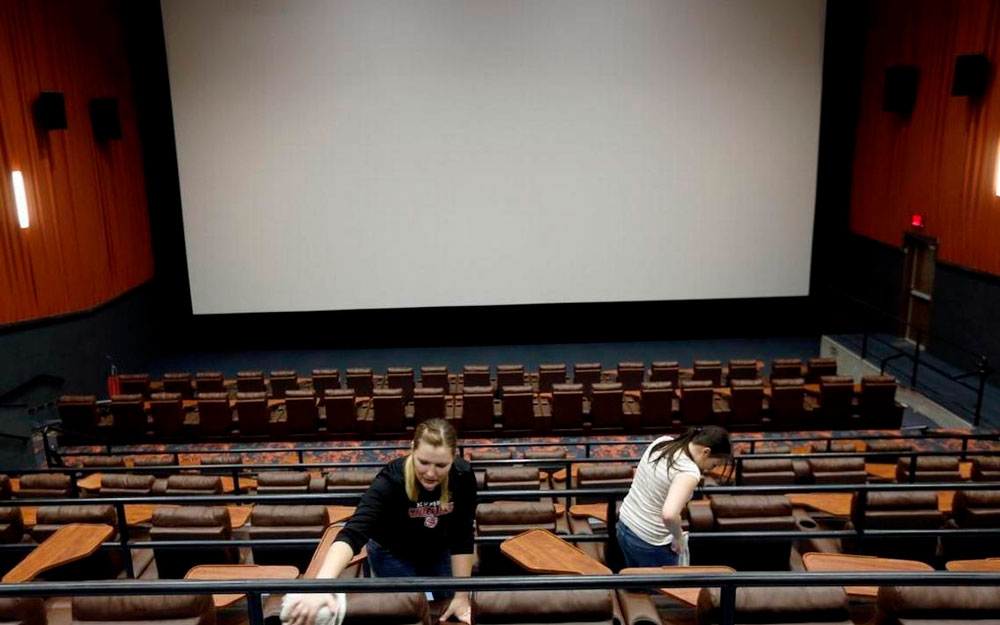If you want open a cinema It is a very good idea not only because of its profitability but also because it is a very fun business activity. But to successfully open your business successfully and the assurance that you will handle yourself according to the law, you must know what permits and licenses you must request before opening it.
What permits and licenses do I need to open a cinema?
In order to open a cinema You need to manage certain licenses and permits that are exclusively for this type of business:
Movie license: The cinema license must be applied for in the local government, as there is a 2003 law that eliminated the need for cinemas to have a separate cinematograph license or for facilities to have a public entertainment license.
Well, according to the law you only need to request a license from the local authority who will grant you the license for your cinema for the films that have been certified by the BBFC.
For non-certified films, you must submit them separately to the local licensing authority for local certification.
However, you should not confuse this license with the content license that allows you to screen movies, as your theater must obtain a corresponding theatrical license agreement from the distributor for each movie you plan to screen.
Non-theatrical licenseAs a film society or exhibitor in non-traditional theaters, you need to obtain a non-theatrical license.
This type of license refers to public screenings of films outside the parameters of traditional cinema, for example clubs, bars, schools, shops, residences, resorts, hospitals and oil rigs are included.
Well, any film projection requires a license regardless of whether it is aimed at a paid audience or not.
Licensing: You should consider two areas of licensing:
Copyright licensing: is the license that allows you to project the movie you want.
Licensing Act 2003: is the license for the projection of the film to the public.
Both permits are considered separately, therefore if you have one license you must meet the requirements of the other.
Security risks: Before opening your theater to the public, you should carry out a fire safety risk assessment.
Health and security: The facility will receive an inspection and you will be issued a certificate as a sample of approval. However, keep in mind that the fire department will send an unannounced inspection of the facility to ensure compliance with the law.
In fact, local authorities are required to supervise compliance with the law, through the environmental health service, for this reason it is convenient that if you are carrying out a construction you allow the health and safety inspection to be involved from the beginning.
Because you must comply with requirements regarding electricity, heating, ventilation, roofing and the purchase of insurance that you must keep updated as a condition for obtaining the cinema and operating building license.
PRS license: It is the license for the reproduction of the music of the soundtrack of the films. You must pay 1% of the net box office in addition to VAT. You may even need the PPL license that allows background music in the auditoriums and lobby.
Restaurant and alcoholic beverages license: You need to obtain this license for the sale of concessions such as the sale of ice cream and popcorn.
Planning permission: You will need a planning permit and a restaurant license if you plan to sell hot food and in the event that you sell alcoholic beverages you will need to file an application for a license with the local licensing judges.
Well, if your cinema has a space for the public to sit and consume alcohol, you will have to manage the liquor license, because if the public can drink alcohol in the auditorium, then you will have to obtain a separate permit.
Tips for opening a cinema
If you obtained a license to show a movie, you can screen as many times as you want depending on that movie and the type of license, since there are licenses for a specific movie and for a single event.
Keep in mind that the federal copyright law is the regulator of projected films, therefore even if you buy or rent a film, you do not have the right to show it to the public, unless the place of the projection has a license to public display.
In this sense, the ownership of films and the right to show them publicly are two issues considered separately.
Well, the copyright holder retains the exclusive rights to the public screening.
This is a legal requirement that applies to private clubs, businesses, recreation departments, parks, camps etc. regardless of how the movies are made.
Copyright Resources: The MPAA, Motion Picture Association of America, is the anti-piracy organization dedicated to helping local governments enforce the law to stop film and video piracy including unauthorized public screenings.
Please note that any exposure of a film outside the privacy of the home is considered a public display.
If your idea is to open it in a school, you should know that if you borrow them from a public library you cannot use them as entertainment if you do not have a license.
For if you borrow movies from a public library for the entertainment of students from an unlicensed school, you are violating copyright law and you are also implicating the public library for non-compliance.
The exclusive providers of the public license is Movie Licensing USA.
Therefore, to show a movie outside your home you will always need a license, since federal copyright law regulates protected materials.
In fact, both the rented, loaned or rented films on DVD or videocassette carry the copyright for the public exhibition of the film outside the home, unless the place where it is used is authorized for exhibition in accordance with copyright. .
